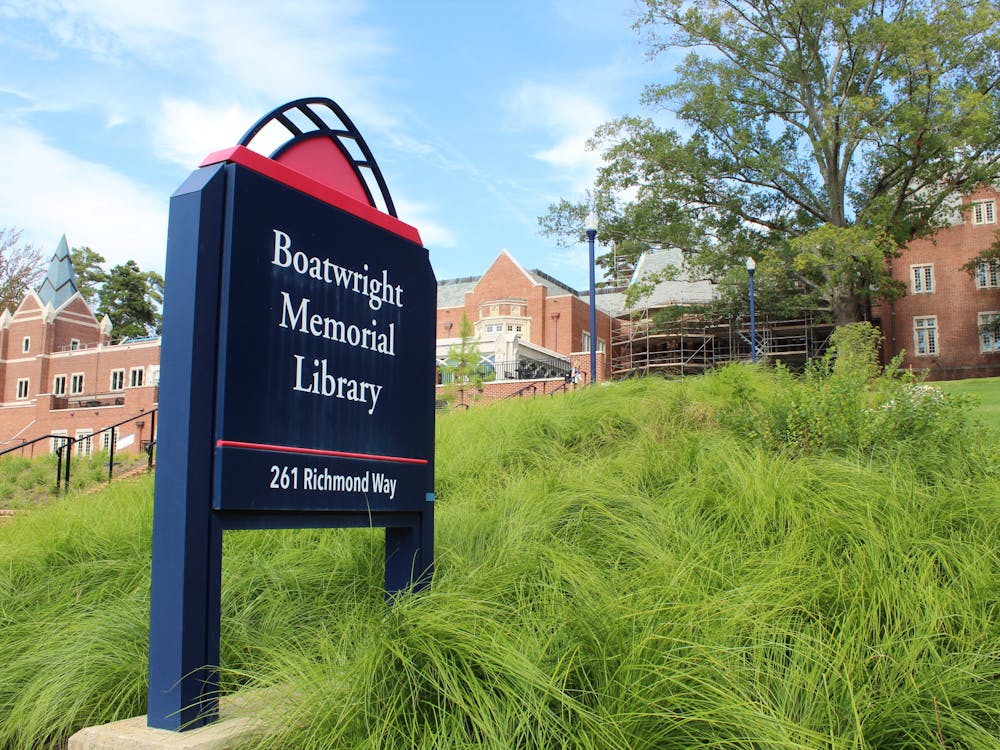A team of three political science majors won $1,600 for designing a House of Delegates map that placed first in the 2011 Virginia College and University Redistricting Competition.
Political science professor Daniel Palazzolo served as faculty adviser and sponsor for the winning team that included Caleb Routhier, Karin Eastby and Andrew Slater.
On April 4, Routhier spoke in front of the Privileges and Elections Committee at the Virginia General Assembly where the map was ultimately rejected.
"They already had the map they liked and had put 200 hours into, and it had tighter population variance and they refused it on those grounds," Routhier said. "At the competition, the organizers said that our plans probably would not do anything in real life, except in the courts.
"When people challenge the new districts as being overly political, the excuse in the past has been that the maps were the best that they could draw. Now the evidence is staring them in the face that overly political maps are simply not the best that can be drawn. I am optimistic that this competition will have an effect even outside of the courts, since just yesterday Del. Bob Brady from Arlington said he wants to introduce our map as a counter to the very political Republican map."
Eastby speculated that the competition had already prompted the General Assembly to publicize drafts of eight preliminary maps. "That is something that has never happened in the past," she said.
"If people know that they can design maps, maybe representatives will be not as quick to design districts that meet their political needs. The only math we were doing is the average number of people per district."
The political corruption described by Eastby is known as gerrymandering, a practice that establishes a political advantage for a party by helping or hindering groups of constituents along political, racial, linguistic, religious or class lines.
Slater, who is also a business major and a volunteer EMT, said that the 2010 census results for Virginia had prompted redistricting initiatives.
Virginia's population, which now totals 8 million, grew by more than 900,000 between 2000 and 2010, and 17 percent of this growth occurred in metropolitan Richmond, according to The Weldon Cooper Center at the University of Virginia. Furthermore, Hispanics, who can be of any race, account for nearly 8 percent of the total population, up from less than 5 percent in 2000. The collective racial and ethnic minority population now accounts for one-third of Virginia's population.
When asked how much effort went into designing the map, Routhier said: "I probably spent 12 to 15 hours drawing the map, but that was because the software was rather slow. I drew 75 to 80 percent of the districts, but my teammates wrote up most of the narrative, and they did it over spring break, too. We literally used mapping software and divided Virginia up into 100 districts for the House of Delegates. The software had all the information of how many people lived in districts, how many African Americans live there, and as we drew lines it calculated whether the district had too many or too few people."
Of politicians guilty of gerrymandering, he said, "I was surprised at how easy it was to draw the districts in decent shapes. That to me says that politicians go out of their way to gerrymander."
Enjoy what you're reading?
Signup for our newsletter
Routhier plans on attending the T.C. Williams School of Law once he graduates, while Eastby and Slater plan on getting jobs.
The Virginia Redistricting Competition was a joint effort led by Quentin Kidd, director of Christopher Newport University's Wason Center for Public Policy, and Michael McDonald, associate professor at George Mason University and a co-leader of the Public Mapping Project.
Contact staff writer Tanveer Ahmed at tanveer.ahmed@richmond.edu
Support independent student media
You can make a tax-deductible donation by clicking the button below, which takes you to our secure PayPal account. The page is set up to receive contributions in whatever amount you designate. We look forward to using the money we raise to further our mission of providing honest and accurate information to students, faculty, staff, alumni and others in the general public.
Donate Now


